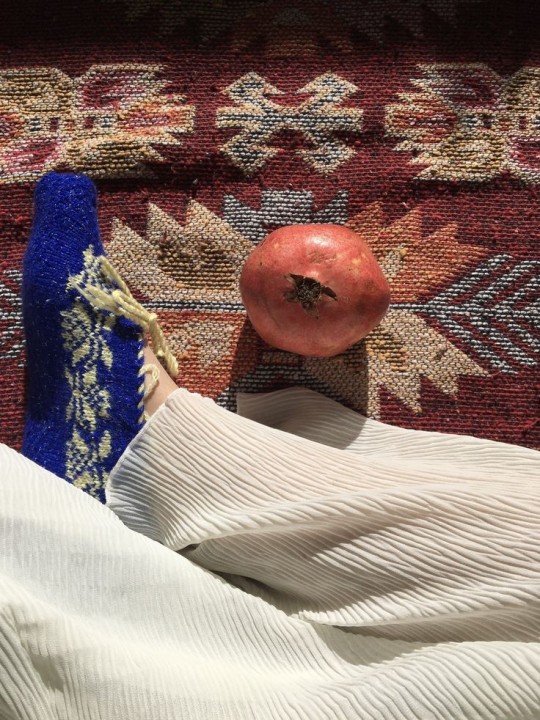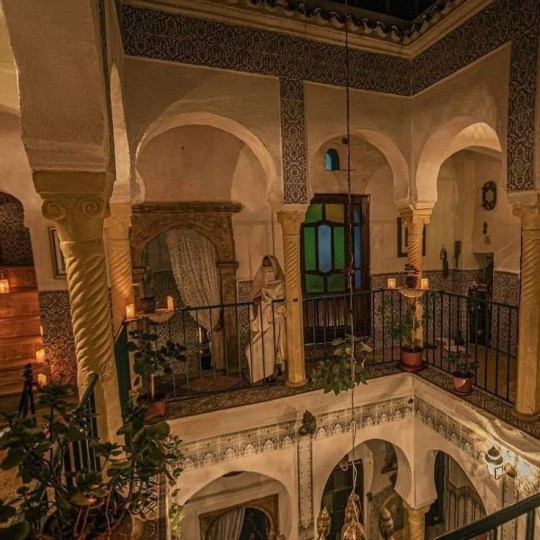#persian poetry
Explore tagged Tumblr posts
Text


sketches with persian lovers based on one of my favorite poems

#art#sketches#illustration#illuminated manuscript#persian manuscript#persian poetry#russian literature#lovers#medieval art#queer historical romance#ancient persia#Middle Ages#persian miniature
165 notes
·
View notes
Text
دست از طلب ندارم تا کام من برآید یا تن رسد به جانان یا جان ز تن درآید
I will not cease my pursuit until my wish is fulfilled, Either my body reaches my beloved, or my soul leaves the body.
Saadi Shirazi
#Saadi Shirazi#persian literature#persian poetry#poetry#middle east#iran#love#Persian Poetry#Persian Literature#Rumi#Saadi#Iranian Poets#Sufi Poetry#Persian Quotes#Mystical Poetry#Rumi Aesthetics#Persian Wisdom#Words#Literature#Love Quotes#Poetry Community#Poetry Lovers#Prose#Literary Aesthetic#Words of Wisdom#Thoughts#Life Lessons#Self Reflection#Deep Thoughts#Beauty of Life
91 notes
·
View notes
Text
"Yak zamana, sohabat-e-ba-Auliah; Behtar az, sad sala ta'at-e-be-riya."
"a moment spent in the company of a Sufi; is better than a hundred years of sincere worship."
~ Jalāl al-Dīn Muḥammad Rūmī
#rumiquotes#mevlana celaleddin rumi#rumi#rumic world#persian#persian poetry#persian quoted#farsi#sufi wisdom#sufism#sufi#true quotes#true words#english literature#lit#aesthetics#poem#famous writers#writer stuff#writer community#writings#famous poets#artist on tumblr#writer on tumblr#english poetry#original writing#spilled words#dark academia#فارسی#رومی
58 notes
·
View notes
Text

Love carries the heavens and gates the hells.
— Sadia Hakim // from Mehrsprachig (Arabic poems by sadia hakim)
#lost love#love poems#writers on tumblr#aesthetic#dark acadamia quotes#dark academism#dark academia#light academia#poetry#love poetry#love poem#romanticize#romantic love#romantic academia#romance#cottagecore#sadia hakim#Arabic poetry#persian poetry#nikita gill#sylvia plath#the unabridged journals of sylvia plath
38 notes
·
View notes
Text

Come back, For my eyes await you,
The way ears of those who are fasting, Await the azaan of Maghrib.
#kashmir#🥀#quotes#persian#persian poetry#sad quotes#writing#writeblr#trumblr#translation#writers on tumblr#ramadan#ramandan poetry
28 notes
·
View notes
Text
So I started to keep count how many times Rumi mentions Shams by name. I can just say... To many... The man can't stop thinking about him.










81 notes
·
View notes
Text




Forough Farrokhzad poetry for today
#persian literature#persian poetry#iranian cinema#modern poetry#forough farrokhzad#mahmoud darwish#foreign languages#poetry by women#poems by women#writers of color#web weaving#text post#contemporary literature#litblr#contemporary poetry#sylvia plath#joan didion#virginia woolf#farsi
171 notes
·
View notes
Text
The minute I heard my first love story, I started looking for you, not knowing how blind that was. Lovers don't finally meet somewhere. They're in each other all along.
— Jalal al-Din Rumi
#dark academia#literature#love#poetry#quotes#spilled ink#spilled words#classic academia#classic literature#urdu poetry#urdu ghazal#rumi#jalaluddin rumi#dark aesthetic#soulmates#dark souls#lovers#philosophical#persian#persian poetry#romantic academia#romantic academia aesthetic
75 notes
·
View notes
Text




گفتم که مرگ عاشقان ،
گفتا کہ درد ہجر من
گفتم کہ علاج زندگی
گفتا کہ دیدار منست
Guftam ke marg aashiqan,gufta ke dard hijr mann.
Guftam ke ilaj zindagi, gufta ke deedar mansat.
I asked what is the cruel death,
replied the pain of living without me
I asked what is a healthy life,
replied gazing at me.
#persian poetry#persian poem#amir khusro#persian art#poetry#persian aesthetic#aesthetic#urdu poems#desi girl#desi teen#desi tumblr#tumblr aesthetic#tumblr quotes#tumblr poetry#tumblr poet society#desi aesthetic#arabicaesthetic#urdu aesthetic#life quotes#urdu poetry#urduzone#urduadab#arabic quotes
111 notes
·
View notes
Text
i could not find anyone in this lone world who is like you let me see your moon-faced effigy, so i will not stay in desire
-Shah Ismail Hatayi
#literature blog#literature#poetry#poetry blog#my collection#quote#lit#quotes#prose#persian poetry#turkish poetry#iran#iranian culture#shah ismail hatayi#longing#desire#yearning
45 notes
·
View notes
Text

#art#illustration#artists on tumblr#medieval au#persian miniature#illuminated manuscript#medieval art#medieval manuscripts#persian poetry
71 notes
·
View notes
Text
"Attar is one of the greatest poets of the Persian language. Nonetheless, his popularity - both in Iran itself and in the West (Goethe, for example, touched on him only briefly in his West-Eastern Divan) - does not match that of Ferdowsi (d. 1020), Omar Khayyam (d. c.1132), Rumi, Saadi (d. 1292) or Hafiz (d. 1389); occasionally he is even omitted from the line of seven Persian poet-princes in favour of Jami (d. 1492). One possible reason for this is that the composition of his poetry is too artful, too complex to be effective in the town squares and teahouses, while at the same time, many of his stories and figures may seem too coarse, too folk-like and too sarcastic to be at the forefront of the high spiritual literature cultivated at courts in former times and in middle-class households today. Attar’s poetry, on the other hand, is far less stilted than that of most Persian poets but, rather, unadorned, clear and immediate. The pain it expresses is not spiritually filtered as in Rumi, far less metaphysically elevated than in Saadi, and not sublimated into pleasure as in Omar Khayyam - where Hafiz turns the earthly into the mystical, Attar strips mysticism down to its leaden, earthly foundation in order to scream his longing to the heavens." --Navid Kermani, The Terror of God: Attar, Job and the Metaphysical Revolt
.
I asked my professor which masnavi (Persian epic poem) he thinks is the greatest ever written. He replied, Rumi's Masnavi (the only masnavi Rumi wrote). Shock. How can there be a masnavi greater than Attar's Conference of the Birds? (There are 4 authentic Attar masnavis; sadly, as far as I know, Conference of the Birds is the only one that has been translated into English.) Reading through Rumi's masnavi I think I am still team Attar. It's Attar's coarseness I love--he is a poet of mad saints and freaks. In Rumi's Masnavi, the absence of a frame story and the pious/didactic tone is somewhat of a barrier for me. The pieces don't quite hang together, whereas Attar's Conference of the Birds is intricately structured--there are stories within stories within stories, each bird with its idiosyncratic psychology--a narrative arc that mirrors the journey of the soul across the seven valleys. But maybe there is a difference between reading a sufi text for its poetry rather than religious instruction, I don't know.
#attar#Rumi#persian poetry#poetry#literature#masnavi#Navid Kermani#islam#islamic mysticism#islamic literature#mysticism#sufism#sufi literature
232 notes
·
View notes
Text

“Come, come, whoever you are. Wanderer, worshiper, lover of leaving. It doesn't matter. Ours is not a caravan of despair. Come, even if you have broken your vows a thousand times. Come, yet again, come, come.”
—Rumi's Masnavi (persian poet)
#light academia#dark academia#poetry#literature#classic literature#poetry stuff#love quotes#readers#romantic academia#bookblr#poetry blog#poem#poems on tumblr#persian#persian poetry#arabic quotes#aesthetic tumblr
28 notes
·
View notes
Text
دے رہے ہیں لوگ میرے دل پہ دستک بار بار، دل مگر یہ کہہ رہا ہے صرف تو اور صرف تو
De rahe hain log mere dil pe dastak bar bar, dil magar yeh keh raha hai sirf Tu aur sirf Tu
— Fariha Naqvi فریحہ نقوی

#urdu#urdu poetry#urdublr#urdu posts#urdushayari#shayari#urdu stuff#urdu ghazal#Fariha naqvi#forough farrokhzad#persian poetry#poetry#poetry collection#tumblr poetry
379 notes
·
View notes
Text
Seek the wisdom that will untie your knot. Seek the path that demands your whole being.
— Rumi (Jalāl al-Dīn Muḥammad Rūmī), translated by Maryam Mafi in 'Hidden Music'
#rumi quotes#rumiquotes#mystical teachers#persian poetry#enlightenment#quotes#spiritual journey#wisdom#mystic poets
226 notes
·
View notes
Text

Saw it. Brought it home. Time to read more 1300s persian poems.
117 notes
·
View notes